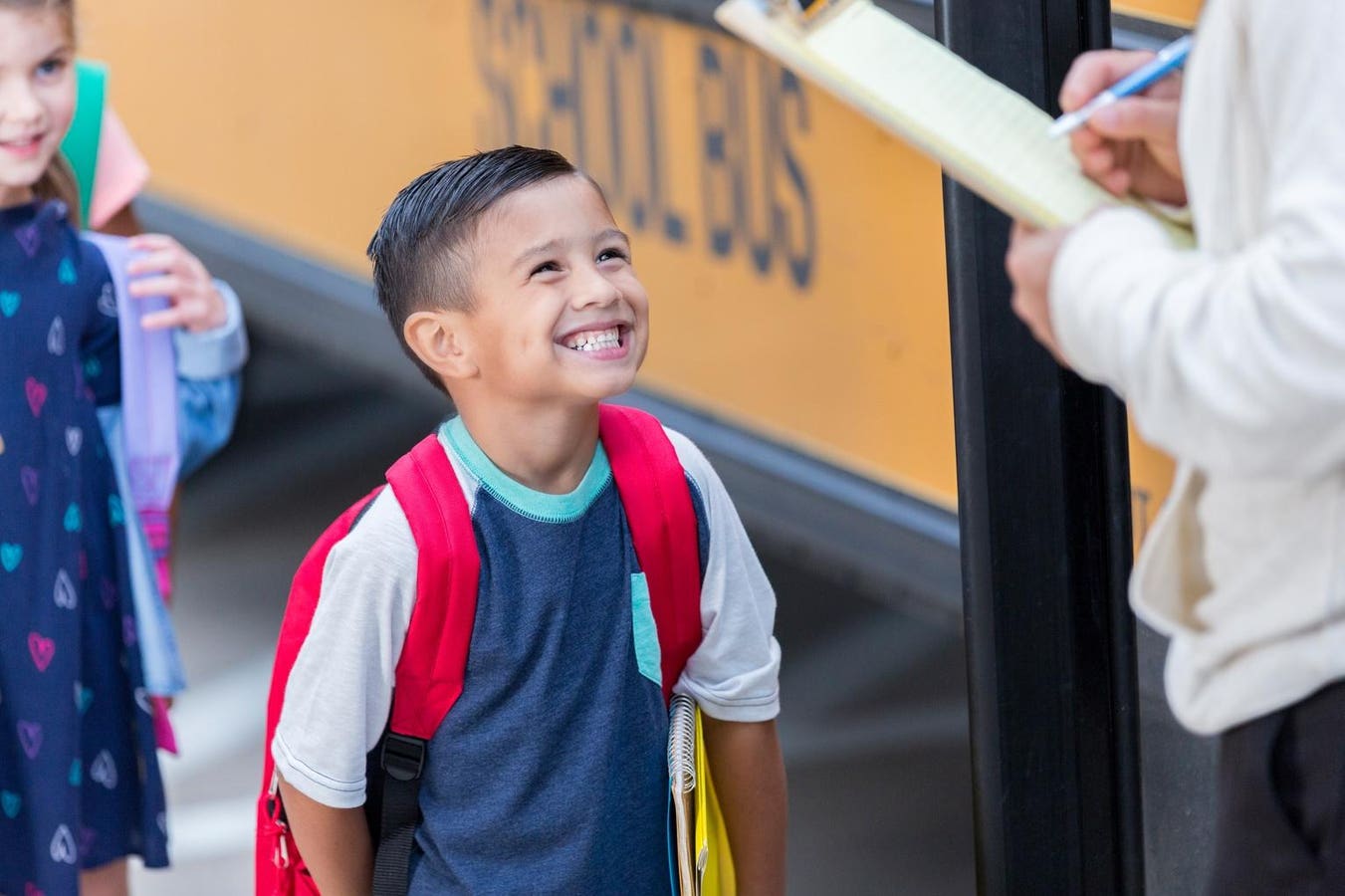Excited elementary school boy greets bus driver as he prepares to load the bus. The bus driver is checking off students as they board the bus.
getty
The back-to-school rush is marked by supply lists, orientation days and fresh first-day outfits. But alongside new backpacks and sharpened pencils, this season is also a chance to reset your children’s health and well-being for the year ahead.
This year, many families are facing new stresses, from economic uncertainty to confusing and sometimes misleading health information. Parents and caregivers can’t control every challenge their children will face, but they can help them start the year with routines, resources and supports that make a difference.
Here are six ways to build a strong foundation for your children this school year.
1. Get A Fresh Start With Check-Ups And Vaccines
The start of the school year is a good reminder to schedule annual check-ups. Well-child visits allow doctors to track growth, address questions and catch potential issues early. It’s also a time to make sure vaccinations are up to date, including routine childhood vaccines, the annual flu shot and any COVID boosters your child’s doctor recommends. Fewer sick days mean more learning days, and these preventive steps pay dividends all year.
2. Build Healthy Routines Early
Kids thrive on consistency, and the beginning of the school year is the ideal time to establish routines around sleep, nutrition and physical activity. The Centers for Disease Control and Prevention recommends setting a regular bedtime that allows for at least 8 to 10 hours of sleep, which improves focus, mood and academic performance. Plan for balanced breakfasts and pack snacks that combine protein, fruits and whole grains. Even small changes, like walking to school a few days a week, can improve energy and build lifelong healthy habits.
3. Prioritize Mental Well-Being
For both students and parents, the beginning of the school year can bring excitement, but also stress. New schedules, shifting friendships and the weight of expectations can be overwhelming. Many schools are expanding access to counselors and mental health programs, and parents can help by simply starting conversations. Check in regularly about how your child is feeling, and try to make them feel comfortable about seeking help when things feel hard. Like physical health, mental health benefits from early attention.
4. Practice Media And Information Literacy
One of the most powerful health skills for kids to develop is learning how to navigate information. In an era when even official-sounding sources may spread false or contradictory information, families need practical tools. Model the habit of double-checking health advice and cross-referencing information, and look to pediatricians, schools and major health organizations first. Teach kids to recognize red flags, like advice that seems too good to be true or comes from anonymous social media accounts. Information literacy isn’t just a digital skill; it’s a health skill. ConnectSafely and other organizations offer resources for parents and teachers.
5. Make Safety A Family Project
Health and safety go hand in hand, and kids learn best when they’re part of the process. Review safe walking or biking routes to school, reinforce seat belt and helmet use and update emergency contacts. Talk about online safety and the importance of asking for help if something feels wrong. Framing safety as a shared project makes kids feel capable, not fearful—and helps build lasting habits.
6. Stay Connected With Your Community
Schools, local health departments and community organizations can be valuable partners for parents. School meal programs, after-school activities, and counseling resources are available in many communities, but families may not know what’s offered until they ask. Build connections with teachers, school nurses and other parents to strengthen the safety net around kids.
Looking Ahead With Optimism
Back-to-school season can be hectic, but it’s also an annual reset—a chance to set kids up for success inside and outside the classroom and beyond. Amid headlines that often highlight fear and division, parents can focus on what’s within their control: fostering healthy routines, encouraging resilience and connecting to trustworthy resources.









